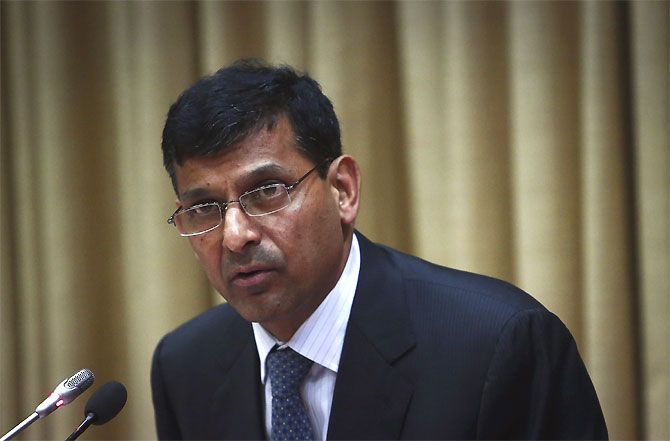The RBI has lowered the rate by 125 basis points this year.

The Reserve Bank of India (RBI) kept its key lending rate unchanged on Tuesday, leaving the door open for more easing but making that dependent on meeting a challenging inflation target for 2017.
At its last meeting in September, the RBI slashed the repo rate by 50 basis points to 6.75 percent to boost growth.
Tuesday's hold had been widely expected, after consumer inflation picked up to a four-month high of 5 percent in October and as emerging markets brace for a hike in U.S. interest rates.
All 45 respondents in a Reuters poll last week expected the RBI to hold the repo rate.
RBI Governor Raghuram Rajan noted weak rural and global demand was holding back economic growth, while highlighting pockets of softness in sectors such as construction.
But he said the focus of monetary policy would shift towards achieving consumer inflation of 5 percent by March 2017, a target analysts say will be challenging, even as he noted risks to inflation remained "slightly to the downside" by the coming March.
The RBI "will use the space for further accommodation, when available, while keeping the economy anchored to the projected disinflation path that should take inflation down to 5 percent by March 2017," Rajan said in his statement.
Achieving the RBI's target of 6 percent inflation in January should not be a problem.
But achieving Rajan's March 2017 objective may prove more difficult for a country that less than two years ago suffered double-digit inflation.
A recent pay hike for government employees and potential food price shocks are causing renewed concern about inflation.
Meanwhile, a prolonged slump in commodity prices has pushed down consumer prices, but a more sustainable fall would depend on the government continuing to keep a lid on spending and pass reform measures such as a national goods and service tax.
The RBI's next policy review is on Feb. 2, before the government usually releases its budget for the coming financial year.
Abheek Barua, chief economist of HDFC Bank in New Delhi, said he expects no change in the repo rate until after the budget, "if at all".
"The risks point to a very cautious approach to accommodation," he said. "The rate cuts have been front-loaded."
Banks in focus
The RBI has lowered the repo rate by 125 basis points this year, including the larger-than-expected 50 bps in September.
Easing inflation has let the RBI focus on supporting economic growth.
Data on Monday showed the economy grew 7.4 percent in the September quarter, faster than China, but below the government's goal of 8.0 to 8.5 percent annual growth.
The RBI on Tuesday reiterated its projection the economy will grow 7.4 percent in the year ending March 2016.
However, Rajan has been frustrated by banks' slow transmissions of the RBI rate cuts, noting on Tuesday that lending rates had only fallen by a median of 60 basis points.
The RBI said it would soon announce a new methodology that will force lenders to set lending rates based on their cost of funding, taking away some of their freedom in setting rates.
"There's room building up for banks to transmit more. It's a matter of time," Rajan said in a news conference.
Meanwhile, the Federal Reserve is widely expected to raise U.S. rates in December for the first time in nearly a decade.
Although India has outperformed other emerging markets over the past two years, the rupee fell to a two-year low last week and was the worst performer in emerging in Asia in November, as foreign investors sold $1.5 billion in bonds and stocks.
The 10-year government bond yield fell 6 bps to 7.73 percent from its previous close. The Nifty rose 0.3 per cent for the day.










 © 2025
© 2025